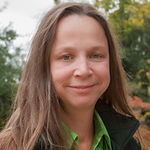Difference between revisions of "Main Page"
| Line 50: | Line 50: | ||
==Publications== | ==Publications== | ||
| + | |||
| + | * Moreno, Alexander, and Tucker Balch. "Speeding up large-scale financial recomputation with memoization." Proceedings of the 7th Workshop on High Performance Computational Finance. IEEE Press, 2014. (conference) | ||
* Moreno, Alexander, and Tucker Balch. "Improving financial computation speed with full and subproblem memoization." Concurrency and Computation: Practice and Experience (2015). (Journal) [http://onlinelibrary.wiley.com/doi/10.1002/cpe.3693/full] | * Moreno, Alexander, and Tucker Balch. "Improving financial computation speed with full and subproblem memoization." Concurrency and Computation: Practice and Experience (2015). (Journal) [http://onlinelibrary.wiley.com/doi/10.1002/cpe.3693/full] | ||
Revision as of 12:34, 14 January 2016
Contents
Quantitative Software Research Group at Georgia Tech
The Quantitative Software Research Group investigates systematic algorithms for trading and investing. Our focus is on Machine Learning, but we are also interested in other types of algorithms that inform us about markets and trading.
Members of Our Group
Tucker Balch, Ph.D., Director, Quant Software Research Group
Professor, Interactive Computing, Georgia Tech
Chief Scientist, Lucena Research, Inc.
website
Maria Hybinette, Ph.D.
Associate Professor, Computer Science, University of Georgia
C David Byrd, Graduate Student and Head TA
Title, IMTC
Brian Hrolenok, Ph.D. Student and Head TA
Multiagent Robotics and Systems Lab
Alumni
Devpriya Dave, MSCS Georgia Tech
Quant Developer, Morgan Stanley
Jayita Bhattacharya, MSCS Georgia Tech
ML Specialist, Pandora
Alexander Moreno
Ph.D. student, Georgia Tech
Publications
- Moreno, Alexander, and Tucker Balch. "Speeding up large-scale financial recomputation with memoization." Proceedings of the 7th Workshop on High Performance Computational Finance. IEEE Press, 2014. (conference)
- Moreno, Alexander, and Tucker Balch. "Improving financial computation speed with full and subproblem memoization." Concurrency and Computation: Practice and Experience (2015). (Journal) [1]


